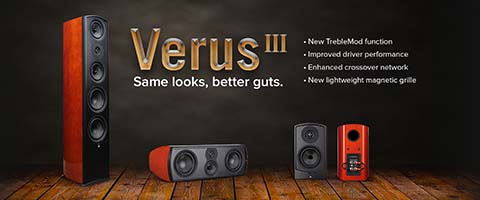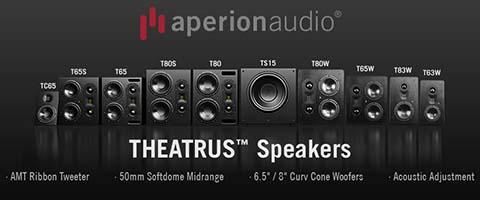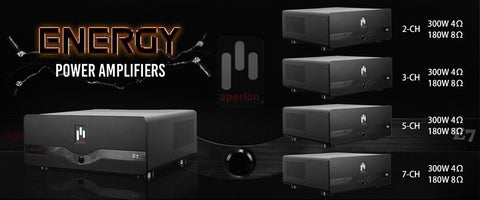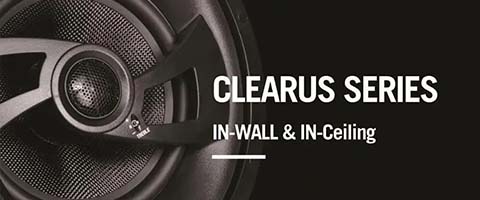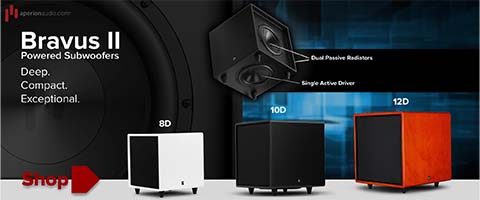From time to time we get calls from our customers asking what amplifier we recommend for a stereo setup. As the world of two channel components has changed over the years, there are now more options than ever. The most common being one of 3 types: tube amps, solid state amps and hybrids.
One of the oldest and ongoing audiophile discussions is advantages of tube amps over solid state amps, and vice versa. Since there are more opinions that I can capture, I’m going to limit my comments to the benefits I see in each and ultimately, what we at Aperion would recommend and why. The important thing to remember, and this is one of Aperion’s fundamental beliefs, is that it’s the sound that matters. You need to get what fits your needs the best to give you the sound that you like. Of course there are other factors like size, build quality and design, but all those being equal, pick the one that sounds best to you.
- - - - - - - - - - - - - - - - - - - - - - - - - - - - - - - - - - - - - - - - - - - - - - - - - - - - - - - - - - - - - - - -
Tubes:

Generally speaking, tube based amplifiers have a classically warm, round and rich sound. They tend to run hot, are a bit delicate in nature and the tubes will need to be replaced every now and then, which adds to the cost of ownership. Additionally, tubes usually are happiest with highly efficient speakers due to putting out less power than transistor based solid state amps. There also seems to be certain pairings of tube amps and speakers that work better than others, leading to an audiophile subculture of audio alchemy in trying to find the best pairings of amp and speakers. In my opinion, tubes tend to bring a level of harmonics and roundness to digital tracks that is quite pleasing. What this means is that tube amps can make digital sound, well, less digital.
- - - - - - - - - - - - - - - - - - - - - - - - - - - - - - - - - - - - - - - - - - - - - - - - - - - - - - - - - - - - - - - -
Solid State:
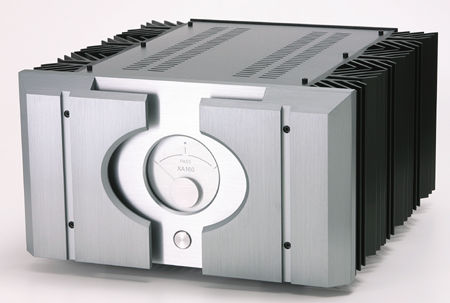
Solid state amps are more commonly regarded by some to be a more accurate representation of how the original recording was intended to sound. I suppose as compared to a tube based amp, a solid state amp is not adding that warmth which some would consider pleasing, but others artificial. Watts for the buck, solid state amps will always give more power per dollar, but more power doesn’t mean better sound. However, if you are running inefficient speakers at high volume levels, solid state amps are going to be your ticket. Also if you plan to add a power amp for home theater use, go with solid state.
Both are good…so, now what? How about a hybrid?
To me, hybrid integrated amps are the best of both worlds. A tube preamp to give your digital signals a bit of warmth with the accuracy and detail of the SS amp.
The hybrids that Peachtree audio puts out makes perfect sense for the type of listening that I partake of these days. My music collection has morphed from LPs to tapes then I really started to collect music when CDs hit the mainstream. Compact discs soon gave way to the minidisc due to equal sound quality and I could make digital mix tapes, but alas computers, mp3, downloading and streaming took over. While I still have CDs, and occasionally dust off an LP, 99% of my listening is done digitally now, served from a computer to a Sonos connect unit. With an amp like the Peachtree Decco65 or Nova125 you have the best of both worlds in my opinion. A tube preamp to give your digital signals a bit of warmth, the power of their Class D amps and all of that run through one of the best digital to analog converters available.
In short, there is no right or wrong answer when trying to pick an amplifier, however do a bit of research first to find something that is going to best fit your needs. Like all audio components, listen first in your home, on your speakers first to see how they sound. Play music that you’re familiar with and then let your ears choose the winner.

Complete Your Sound System Solution

Sign up for our newsletter below, and join our social media groups to stay up to date with the latest news and information from Aperion Audio!
 |
 |


